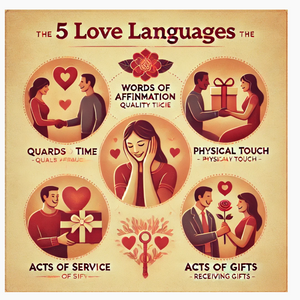Understanding Boundaries in Friendships
Why Are Boundaries Important in Friendships?
Friendship is built on trust, mutual respect, and understanding. However, even the strongest friendships can face challenges when personal boundaries are ignored. Setting boundaries ensures that both individuals feel respected, valued, and comfortable in the relationship.
What Are Appropriate Boundaries in a Friendship?
Healthy friendships should include boundaries that protect emotional well-being and personal space. Some common boundaries include:
-
Respect for personal time and space – Friends should understand when you need alone time or focus on other commitments.
-
Emotional support without over-reliance – Supporting each other is essential, but one person shouldn’t be responsible for all emotional needs.
-
Privacy and confidentiality – Friends should respect personal information and not share private matters without consent.
-
Mutual respect in disagreements – Healthy friendships allow for differences in opinion without conflict turning into hostility.
💡 Related Reading: Emotional Boundaries in Friendships
What Does a Lack of Boundaries Look Like?
When boundaries are not established, friendships can become overwhelming or even toxic. Signs of a lack of boundaries include:
-
Feeling drained or emotionally exhausted after interacting with a friend.
-
Experiencing guilt or pressure to always be available.
-
Having personal information shared without consent.
-
Feeling like your needs or opinions are constantly dismissed.
-
Being afraid to say no to requests for time, help, or support.
💡 Related Reading: How to Set Boundaries with Friends Who Hurt You
How to Set Boundaries Without Being Rude
Many people worry that setting boundaries will make them seem unkind, but boundaries actually strengthen friendships by ensuring both people feel comfortable. Here are a few ways to set boundaries respectfully:
-
Communicate openly and honestly – Express your needs clearly and with kindness.
-
Use "I" statements – Instead of saying "You always do this," try "I feel overwhelmed when..."
-
Be consistent – If you say you need space, stick to it to reinforce your boundary.
-
Acknowledge their feelings – Let them know you value the friendship but need certain limits.
-
Offer solutions – Suggest alternative ways to support each other that feel healthy for both.
💡 Related Reading: Friendship Boundaries Worksheet
Boundaries Between Platonic Friends
Platonic friendships thrive when there are clear expectations and mutual understanding. Some essential boundaries include:
-
Respect for romantic relationships – Avoid behaviors that may blur lines or cause issues with significant others.
-
Physical boundaries – Ensure both friends are comfortable with physical affection or closeness.
-
Emotional limits – Avoid becoming emotionally dependent on one another in an unhealthy way.
-
Time boundaries – Allow space for other friendships and personal growth.
💡 Related Reading: Friendship Boundaries When in a Relationship
Setting Boundaries with Friends Who Have Mental Health Challenges
Supporting a friend with mental illness is an act of kindness, but it’s also important to maintain your own emotional well-being. Some ways to set healthy boundaries include:
-
Encouraging professional help – Support them, but don’t take on the role of a therapist.
-
Communicating your own needs – Let them know if certain conversations or behaviors are affecting your well-being.
-
Setting limits on availability – Be supportive, but don’t feel guilty for prioritizing your own health.
-
Practicing self-care – Make sure you take care of yourself emotionally and mentally while supporting others.
💡 Related Reading: Setting Boundaries with Friends with Mental Illness
Final Thoughts: The Key to Healthy Friendships
Boundaries are essential for maintaining strong, supportive, and respectful friendships. Setting clear limits helps prevent misunderstandings, resentment, and emotional exhaustion. By communicating openly and prioritizing mutual respect, friendships can flourish in a healthy way.
📢 Have you ever struggled with setting boundaries in friendships? Share your experience in the comments!




